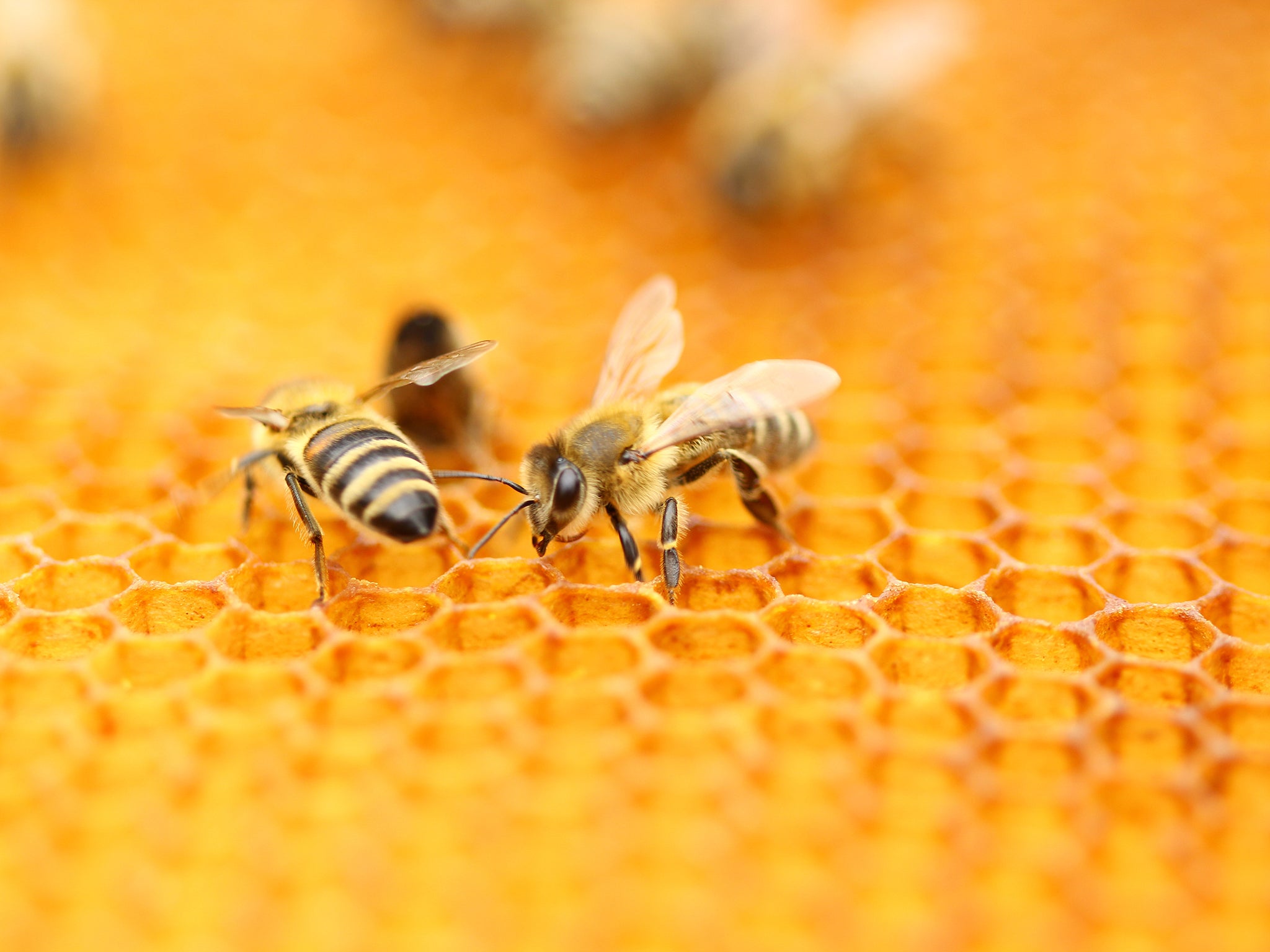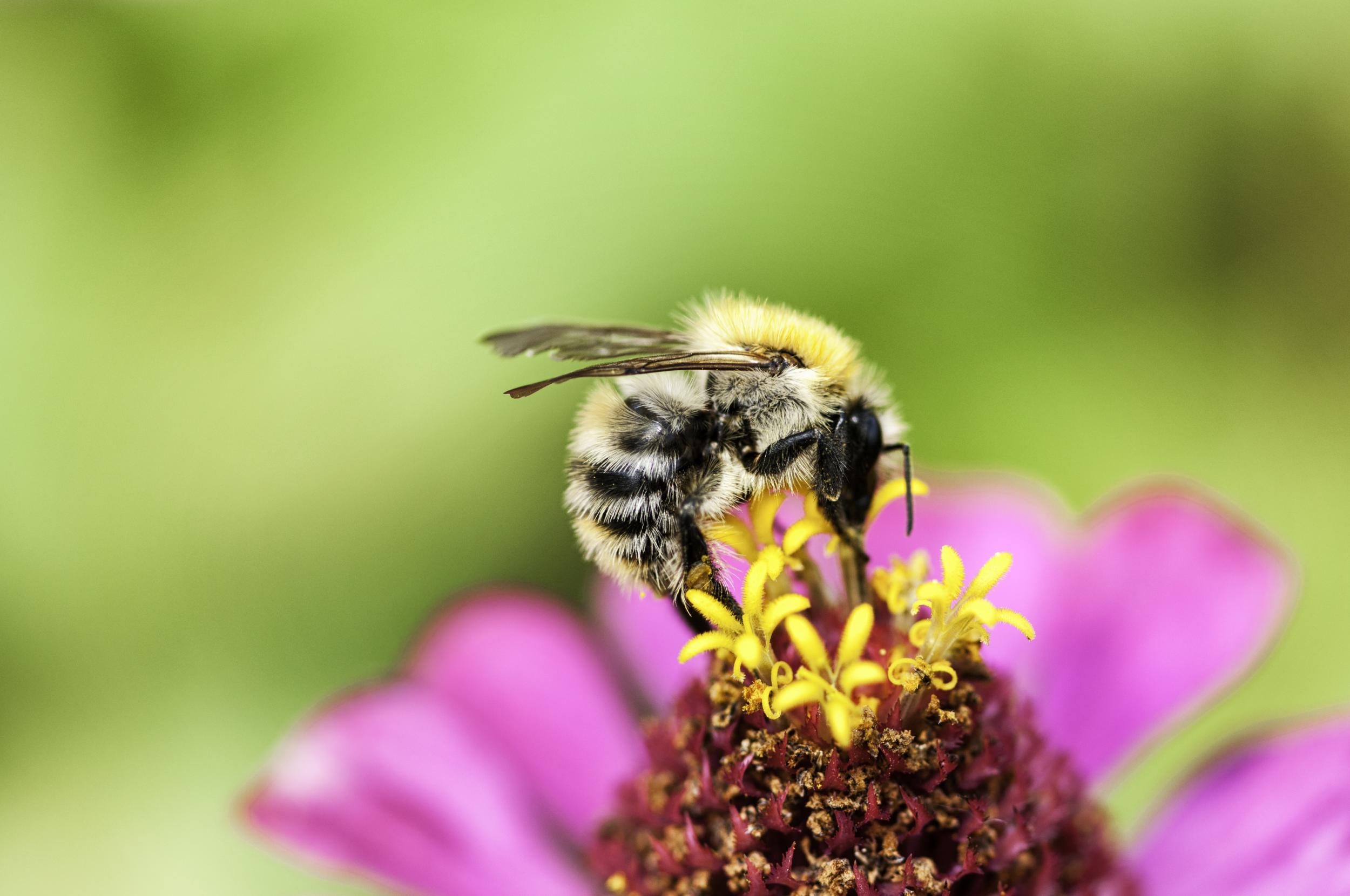Why is beekeeping booming in Berlin?
With much of the western world worried about bees dying off, the German capital has the opposite problem

Your support helps us to tell the story
From reproductive rights to climate change to Big Tech, The Independent is on the ground when the story is developing. Whether it's investigating the financials of Elon Musk's pro-Trump PAC or producing our latest documentary, 'The A Word', which shines a light on the American women fighting for reproductive rights, we know how important it is to parse out the facts from the messaging.
At such a critical moment in US history, we need reporters on the ground. Your donation allows us to keep sending journalists to speak to both sides of the story.
The Independent is trusted by Americans across the entire political spectrum. And unlike many other quality news outlets, we choose not to lock Americans out of our reporting and analysis with paywalls. We believe quality journalism should be available to everyone, paid for by those who can afford it.
Your support makes all the difference.They go to the rescue when others would flee. They are the schwarmfanger, Berlin’s 30 or so swarm catchers, on call to collect honeybees by the thousands when they gather where people do not want them.
This year, the schwarmfanger have been very busy.
While much of the western world is worried about bees dying off, Berlin and other big German cities have the opposite problem – there are too many hives, because of the rising popularity of urban beekeeping. Shoppers at Berlin’s finer organic stores and public markets are increasingly seeing locally grown honey for sale.
“It’s quite hip at the moment, people put up a hive on their balcony somewhere and think they are doing something for nature,” says Alfred Krajewski, 59, one of the volunteer swarm catchers.
Many newcomers to beekeeping mistakenly see it as a fairly easy hobby, when in reality they have neither the knowledge nor the time for it. Like anyone who gets fed up with a lousy landlord, the bees leave, turning up in seething clumps under eaves, on lampposts or in backyards – and a call goes out to someone like Krajewski.
Berlin has more than 20 hives per square mile belonging to registered beekeepers, and an unknown number tended by people who are not registered, according to Benedikt Polaczek, who heads the city’s beekeepers’ association, which helps organise the swarm catchers.
“We have too many people who keep bees who don’t do enough for their bees,” says Polaczek, who teaches beekeeping at the Free University of Berlin. He is careful to make a distinction between trained beekeepers and those who do not know enough to do it properly.
The rest of Germany has fewer than six registered hives per square mile, short of the number it should have for agricultural needs, he say, and in Brandenburg, the state that surrounds Berlin, the figure is less than three.
Around the world, “colony collapse disorder” has significantly shrunk honeybee populations over the last two decades, a crisis that has been blamed on an array of causes, including pesticides, herbicides, monoculture farming and a warming climate that favours parasites like mites.

The bees are used to pollinate crops, so their decline poses a threat to world food supplies.
Many wild creatures that pollinate crops and other plants have also declined, including wild bee species, moths, butterflies, wasps, beetles, bats and birds. They may be threatened by the same forces as honeybees, and their living space is reduced every year by human expansion.
Campaigns have called on people to protect the honeybee, but scientists warn that focusing on one particular insect is misleading and even counterproductive.
“The honeybee is one of 20,000 species of bees,” say Jonas Geldmann, a researcher at the University of Cambridge. “It’s a species that, at least in the European setting, is extinct as a wild species. It’s another cow or a chicken – a managed species.”
Honeybees provide a valuable service to humans, but despite what many people believe, studies have not found that raising them contributes to biodiversity, Geldmann and a Cambridge colleague wrote in an article published last year in Science magazine.
In fact, in an area like Berlin that has too many bees, they can harm biodiversity, he says. They may deplete the nectar that wild insects depend on, and diseases spread more readily among managed species than wild ones.
Instead, he says, city dwellers should pressure authorities to keep parks more wild during the full life cycle of insects, not just when wildflowers are in their prime, and to avoid using pesticides.
Polaczek teaches courses on beekeeping for laypeople. In the past he would not have more than 40 people in a class, but last year one course received more than 200 applicants.
In addition to poor care, weather and disease make bees more likely to swarm out of their hives in search of a new home.
To an experienced bee catcher, collecting them is rather straightforward, says Krajewski, who is a retired telecommunications worker and part-time model. He has been catching feral swarms in Berlin for 25 years.
He wears a white beekeeper’s suit, and during weeks when he has a job modelling for photos that will show his hands, he also wears gloves. He sprays a swarm with water to make the bees heavy and sluggish, and places his bee trap, a box, below them. Then he tries to knock insects into the box and shuts the lid.
If the queen falls into the box, the rest follow and stay with her. If she does not, the bees leave through a hole in the trap, and Krajewski repeats the procedure. The bees are isolated in the box for several days to make sure they are not sick, then given to a beekeeper for permanent resettlement.
Robert Gummi, 44, another of Berlin’s swarm catchers, blames the increase in swarms on this year’s extremely warm weather.
“There hasn’t been a year with the bees swarming like this – and I’ve heard this from my beekeeping colleagues, too – in a long while,” he says.
As for neophyte beekeepers, he acknowledges the trend but does not see the harm. “People will realise that spending only an hour a week is not really that fun,” he says, “and the trend will fade again quite naturally.”
© New York Times
Join our commenting forum
Join thought-provoking conversations, follow other Independent readers and see their replies
Comments